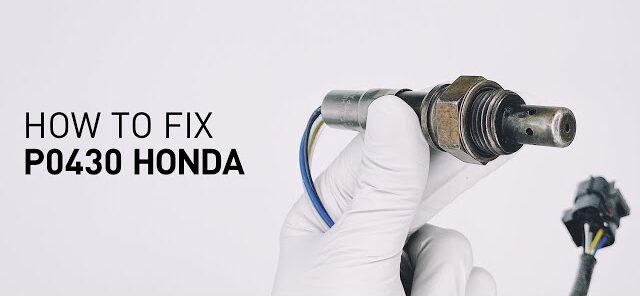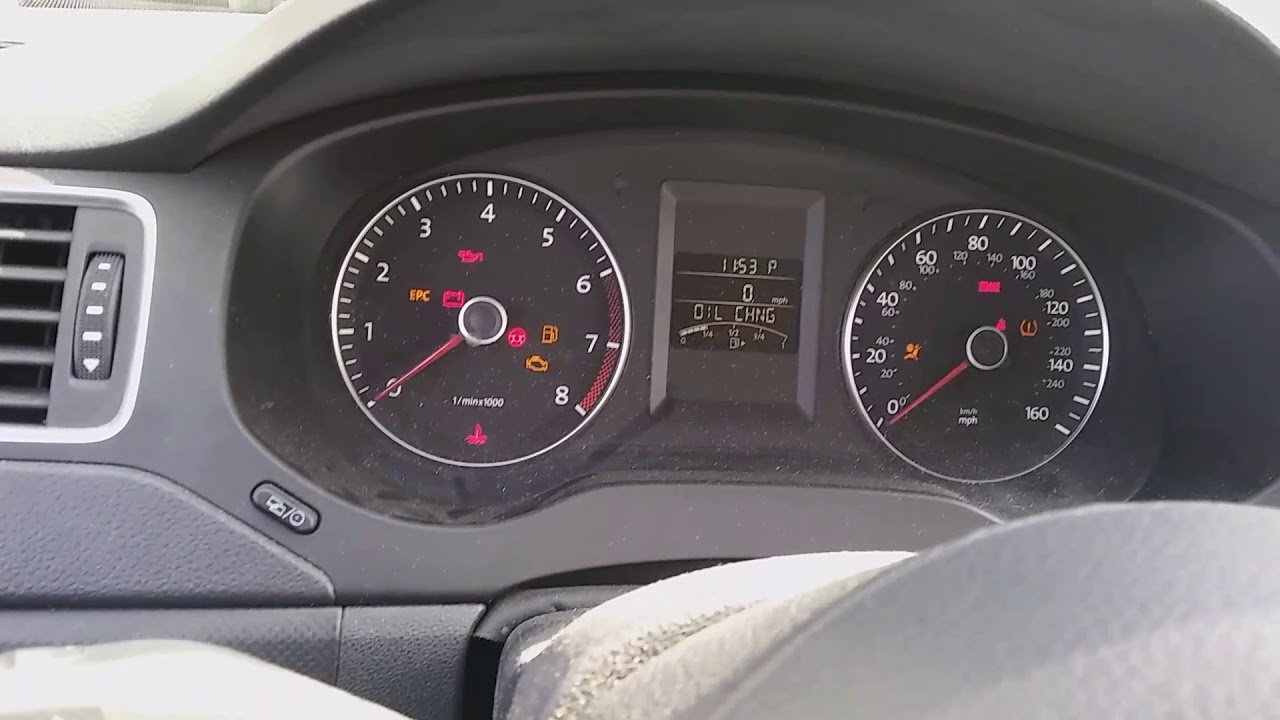The P0430 code is a common issue that Honda Accord owners face.
It is an emissions-related trouble code that indicates that the vehicle’s control module has detected that the three-way catalytic converter is not working properly.
This can be caused by a catalytic converter issue or a bad O2 sensor.
If left unattended, it may result in a lack of power or poor acceleration.
In this article, we will explore the meaning of the P0430 Honda Accord and its symptoms, causes, and possible solutions.
We will also provide tips on how to diagnose the problem yourself if you have an OBD-II code reader and are familiar with the codes.
Stay tuned! 🚗
What Does P0430 Code Message Means?
The P0430 code is a trouble code associated with vehicle emissions, signaling that the control module has identified insufficient performance in the three-way catalytic converter. This typically implies that the converter is not operating at the efficiency levels expected by the factory. The origin of this code is often traced back to problems with the catalytic converter or a malfunctioning O2 sensor.
To put it simply, when the downstream oxygen sensor on bank 2 detects that the catalytic converter is not meeting efficiency standards according to factory specifications, the P0430 code is triggered. It’s important to note that this code is generic, meaning it can occur across various vehicle types and models.
NOTE: If you’re searching for P0430 honda accord 2014, P0430 honda accord 2013, P0430 honda accord 2012, P0430 honda accord 2009, P0430 honda accord 2008, P0430 honda accord 2007, P0430 honda accord 2003, or P0430 honda accord 2011, this article will detail everything for you.
What is the most common cause for a P0430 code On Honda Accord?
The P0430 trouble code serves as a diagnostic indicator related to emissions issues within a vehicle. Primarily, it is frequently associated with a deteriorating catalytic converter, marking the most prevalent cause for its occurrence. This code is integral to the On-Board Diagnostics II (OBD-II) system, wherein the vehicle’s control module detects suboptimal performance in the three-way catalytic converter. Specifically, it signals that the converter is not operating with the efficiency levels anticipated by the factory.
While a failing catalytic converter stands out as the leading culprit, several other potential triggers may prompt the manifestation of the P0430 code. Among these, malfunctioning oxygen sensors play a pivotal role. The downstream oxygen sensor, situated after the catalytic converter on bank 2, is tasked with assessing the efficiency of the catalytic converter. If this sensor detects that the converter is falling short of factory-specified efficiency standards, it initiates the P0430 code.
Beyond oxygen sensors, various factors within the vehicle’s exhaust system can contribute to the emergence of this code. Damaged exhaust pipes or mufflers, for instance, may compromise the overall effectiveness of the catalytic converter. Additionally, problems related to the engine’s timing or fuel system can also influence the performance of the converter, resulting in the triggering of the P0430 code.
It is crucial to recognize that the P0430 code is a generic trouble code, applying universally across diverse vehicle types and models. Consequently, understanding the multifaceted causes behind its activation is imperative for comprehensive diagnostics and effective resolution. As vehicles become more complex, the interplay of components necessitates a thorough examination to pinpoint the exact source of the emission-related concern flagged by the P0430 code.
How do I fix code P0430 In Honda Accord?
The P0430 trouble code, a common indicator of emissions-related issues within a vehicle, is often attributed to a failing catalytic converter. Despite its prevalence, there are several other potential triggers for this code, encompassing faulty oxygen sensors, compromised exhaust pipes or mufflers, and complications within the engine’s timing or fuel system. To effectively address the P0430 code and restore optimal vehicle performance, consider the following comprehensive solutions:
-
Catalytic Converter Inspection and Replacement
The foremost step in resolving the P0430 code is a thorough examination of the catalytic converter. A damaged converter may necessitate replacement to restore its efficiency. Engage a qualified mechanic to assess the condition of the catalytic converter and, if required, undertake the replacement process. Selecting a high-quality replacement converter is crucial to ensure optimal emissions control.
-
Oxygen Sensor Replacement
If a faulty oxygen sensor is identified as the culprit behind the P0430 code, replacing it is a viable solution. Acquire a new oxygen sensor and choose between a DIY replacement or enlist the expertise of a mechanic for a professional installation. The downstream oxygen sensor on bank 2, responsible for evaluating catalytic converter efficiency, plays a critical role in emissions control and should be in optimal working condition.
-
Exhaust System Examination and Repair
Damaged exhaust pipes or mufflers can contribute to the P0430 code. To rectify this, consult with a mechanic to conduct a comprehensive inspection of the exhaust system. Depending on the extent of damage, repairs or replacements may be necessary. A well-maintained exhaust system ensures proper emission control and vehicle functionality.
-
Engine Timing and Fuel System Assessment
Addressing issues within the engine’s timing or fuel system is paramount to resolving the P0430 code. Entrust a qualified mechanic with the task of thoroughly examining and, if needed, repairing the engine’s timing and fuel system. Precise timing and a well-functioning fuel system are integral to optimal combustion, reducing the risk of emissions-related malfunctions.
-
Professional Diagnostic Assistance
Given the complexity of modern vehicles, seeking professional diagnostic assistance is advisable. A certified mechanic equipped with diagnostic tools can conduct a comprehensive analysis of the entire emission control system. This approach allows for the identification of nuanced issues that may not be immediately apparent and ensures a precise and effective resolution of the P0430 code.
What side is the code P0430 Bank 2?
The P0430 code is a universal diagnostic trouble code applicable to vehicles of various makes and models. This code is triggered when the downstream oxygen sensor positioned after the catalytic converter on bank 2 observes that the catalytic converter is not performing up to the efficiency standards specified by the factory. Essentially, the P0430 code is associated with the catalytic converter located on bank 2 within the engine.
Where is bank 2 sensor 2 located in Honda Accord?

In a Honda Accord, the location of “bank 2 sensor 2” refers to the downstream oxygen sensor on bank 2.
To better understand this, let’s break down the terminology:
- Bank 1 vs. Bank 2: In a V6 or V8 engine, there are typically two banks of cylinders, labeled as Bank 1 and Bank 2. Bank 1 is usually where Cylinder 1 is located.
- Sensor 1 vs. Sensor 2: Oxygen sensors are often labeled as Sensor 1 (pre-catalytic converter) and Sensor 2 (post-catalytic converter). Sensor 1 monitors the air-fuel mixture before it reaches the catalytic converter, while Sensor 2 monitors the exhaust gases after they pass through the catalytic converter.
In the context of “bank 2 sensor 2” in a Honda Accord:
- Bank 2: This refers to the bank of cylinders that does not contain Cylinder 1. In the case of a V6 engine, Bank 2 is typically on the side of the engine opposite Cylinder 1.
- Sensor 2: This indicates the downstream oxygen sensor after the catalytic converter in Bank 2.
Therefore, “bank 2 sensor 2” in a Honda Accord points to the downstream oxygen sensor on the side of the engine that does not have Cylinder 1, after the catalytic converter.
What causes catalyst system efficiency below threshold bank 2?
The “Catalyst System Efficiency Below Threshold (Bank 2)” code typically indicates a deficiency in the catalytic converter’s performance on the side of the engine designated as “Bank 2.” This issue is commonly attributed to a failing catalytic converter due to age or damage, disrupted oxygen sensor readings (particularly Bank 2 Sensor 2, the downstream sensor), exhaust system leaks, or fuel system irregularities.
An examination of these components is crucial for pinpointing the root cause, and subsequent diagnostics and repairs may involve replacing the catalytic converter, addressing oxygen sensor issues, fixing exhaust leaks, or resolving fuel system problems to restore optimal catalyst efficiency in Bank 2.
FAQs
What are the symptoms of the P0430 code for a Honda Accord?
The typical symptoms of the P0430 code are the service engine soon light coming on and a rotten egg or sulfur smell.
What is the repair cost for the P0430 code for a Honda Accord?
The repair cost for the P0430 code can range from $250 or less for O2 sensor replacement to several hundred dollars for catalytic converter replacement.
How do I diagnose the P0430 code for a Honda Accord?
You can diagnose the P0430 code by using an OBD-II code reader to retrieve the code and then checking the catalytic converter, oxygen sensors, exhaust pipes, mufflers, and engine’s timing and fuel system.
Can I drive my Honda Accord with the P0430 code?
Yes, you can drive your Honda Accord with the P0430 code. However, if left unattended, it may result in a lack of power or poor acceleration.
What is the bank 2 side of the engine for a Honda Accord?
Bank 2 is the side of the engine with the second cylinder. Typically, the first cylinder is closer to the front of the engine.
What is the bank 1 version of the P0430 code for a Honda Accord?
The bank 1 version of the P0430 code is P0420.
What is the meaning of the P0430 code for a Honda Accord in simple terms?
The P0430 code means that the catalytic converter on bank 2 of the engine is not working properly and needs to be checked and repaired.
Can bad spark plugs cause P0430?
Bad spark plugs are generally not a direct cause of the P0430 trouble code. The P0430 code specifically indicates an issue with the efficiency of the catalytic converter on a particular bank of the engine. However, while bad spark plugs themselves may not trigger a P0430 code, they can indirectly contribute to conditions that might lead to catalytic converter problems.
If spark plugs are not firing properly, it can result in incomplete combustion and an imbalanced air-fuel mixture. This can lead to an increase in unburned hydrocarbons and other pollutants reaching the catalytic converter. Over time, this excessive exposure to unburned fuel can potentially contribute to catalyst degradation and trigger the P0430 code. It’s important to address spark plug issues promptly to maintain proper engine combustion and prevent downstream effects on the catalytic converter and emissions control system.
Also Read: [SOLVED] Why Is My Forward Camera System Unavailable?
What steps should I take upon encountering the Honda Accord P0430 code?
Adhere to the provided list of potential causes. Conduct a visual inspection of the relevant connectors and wiring harness. Examine for any signs of damage, corrosion, or issues such as bent or broken connector pins.
What Are Some Mistakes When Defining The P0430 Honda Accord?
Some common mistakes when defining the P0430 code in a Honda Accord or Honda Pilot include solely attributing it to a faulty catalytic converter without considering the potential involvement of a malfunctioning A/F sensor or oxygen sensor.
Overlooking additional codes associated with P0430, especially those related to misfires (P0300-P0308), can lead to a critical omission. Ignoring misfire issues before replacing the catalytic converter, even if it’s new, may result in premature failure.
Equally important is the failure to address codes indicating the engine’s operating conditions, such as running too lean or too rich (P0171, P0172, P0174, P0175), as neglecting these issues can contribute to catalytic converter damage.
Therefore, a comprehensive diagnostic approach that considers all relevant codes and associated components is crucial for effective troubleshooting and resolution.
Conclusion
Dealing with the P0430 code can be a frustrating experience for Honda Accord owners.
However, understanding the meaning of the code, its symptoms, causes, and possible solutions can help you diagnose and fix the problem quickly.
In this article, we have explored the P0430 code for a Honda Accord in detail, including its meaning, symptoms, causes, and possible solutions.
We have also provided tips on how to diagnose the problem yourself if you have an OBD-II code reader and are familiar with the codes.
We hope this article has been helpful to you.
If you have any questions or comments, please feel free to leave them below.
Thank you for reading!




